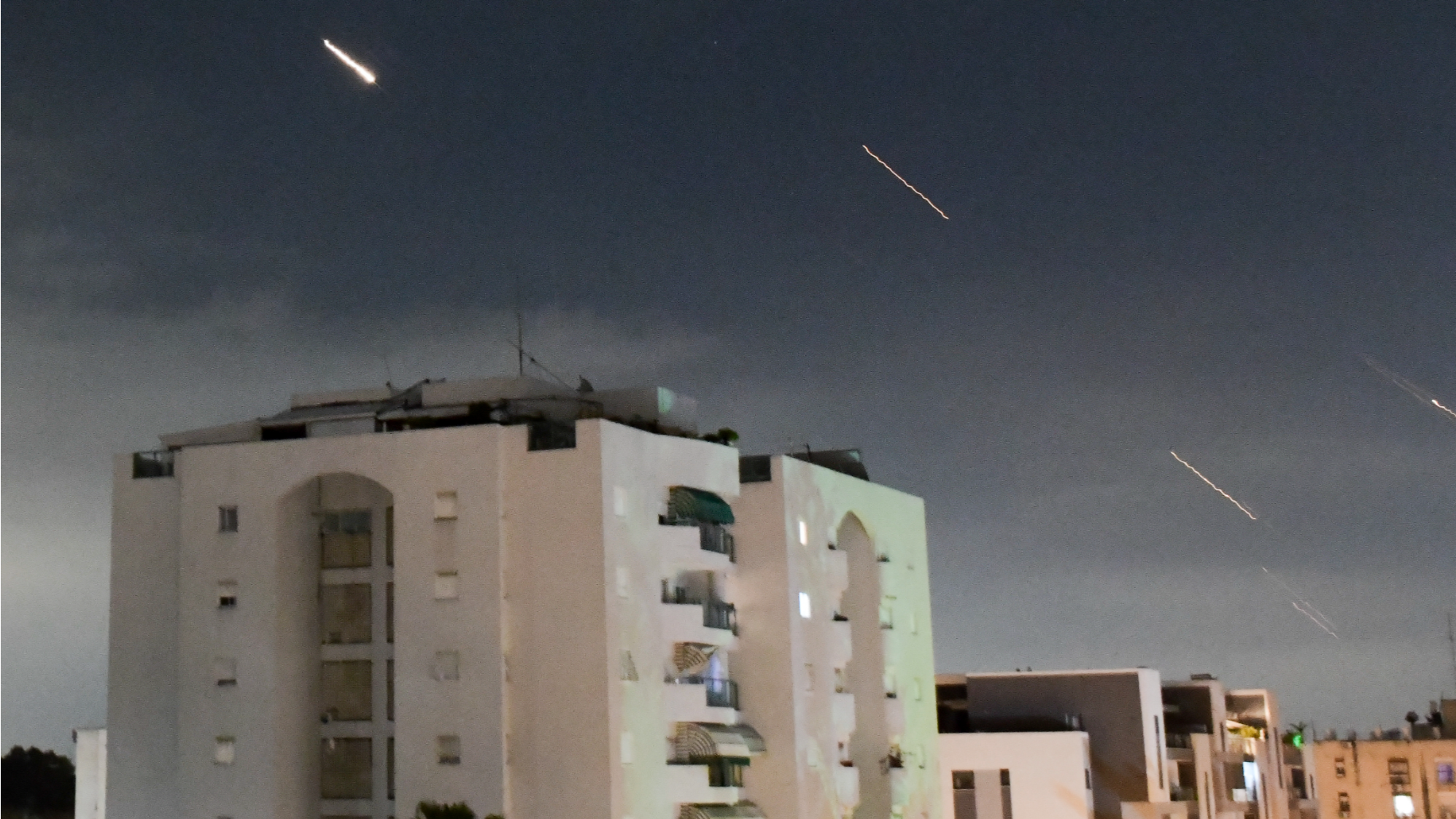
With the tensions between Israel and Iran threatening a broader regional conflict in the Middle East, experts are urging de-escalation and a continued commitment to achieving a permanent cease-fire in the Gaza strip.
They added that Israel's strategic maneuvers “represent a calculated policy of distraction” with Prime Minister Benjamin Netanyahu becoming increasingly desperate for respite amid domestic upheaval, legal challenges, and dwindling support from traditional allies over Israel’s ongoing military campaign in Gaza.
Israel's wartime Cabinet met for hours to discuss potential responses to Iran's "unprecedented" missile and drone retaliation over the weekend following killing of Iranian officers and bombing Iranian consulate building in Damascus on April 1.
Iran launched drone and missile strikes against Israel late on April 13, in response to the April 1 airstrike on an Iranian diplomatic building in the Syrian capital of Damascus. The Damascus attack killed at least one senior figure in Iran's Islamic Revolutionary Guard Corps and several other officers.
Amid a meeting with pilots at the Nevatim Air Force base, which suffered minor damage from Iranian missiles, the chief of staff of the Israel Defense Forces Herzi Halevi said on Monday that a response is imminent, Xinhua cited a report by Israel's N12 TV news.
Francesca Albanese, the United Nations Special Rapporteur on the human rights situation in the West Bank and Gaza, said that she hoped Iran’s military response to Israel’s bombing of the Iranian embassy in Syria “doesn't escalate into a full blown war”.
“At the same time I urge everyone to remain committed to stop Israel’s genocide in Gaza and its brutal violence in the West Bank. This is the only path to peace in the region and beyond,” Albanese wrote on X, formerly Twitter.
Rasha Al Joundy, a senior researcher at the Dubai Public Policy Research Centre, believes that Albanese used the word “committed” to warn against using the Iranian response against Israel “as an excuse to drop support for a cease-fire in Gaza”.
“Despite the fact that Iran executed a calculated response with no casualties on the Israeli side, there is always the risk of more escalation if Israel decides to also respond to the Iranians,” Al Joundy told China Daily.
“This means a widespread conflict would be on the horizon in the region. As long as there is war in Gaza and the two-state solution is not supported, you cannot achieve ultimate peace,” she added.
Israeli forces have carried out a large-scale offensive in Gaza in response to Hamas attacks on Israel on Oct 7, which saw about 1,200 people killed and more than 200 taken hostage.
To date, the Palestinian death toll from ongoing Israeli attacks on Gaza has risen to more than 33,700.
Before the Iranian strike over the weekend, pressure had been piling on Israel over its defiance of the United Nations Security Council Resolution 2728, which called for an immediate cease-fire in Gaza.
Israel has also been pressured by the international community to allow the flow of life-saving aid amid accusations it is using starvation as a weapon. International agencies have said that there is looming famine in Gaza.
Tel Aviv has also faced growing opposition over the Israel army’s killing of seven aid workers from World Central Kitchen on April 1 after strikes hit their three-vehicle convoy despite being clearly marked with the charity’s logos.
The seven killed were from Australia, Poland, the United Kingdom, a dual citizen of the US and Canada, and Palestine. The governments of the nationals involved have called for an independent and thorough investigation into the incident, with Australia hinting it could recognize Palestinian statehood.
Arhama Siddiqa, a research fellow at the Institute of Strategic Studies Islamabad in Pakistan, told China Daily that Israel's “strategic maneuvers” represented “a calculated policy of distraction”, albeit perceived as provocations by some.
“Prime Minister Netanyahu, amidst internal upheaval and looming legal challenges, appears increasingly desperate for a respite,” said Siddiqa.
“External pressures on Israel are mounting, even from its traditional allies, against the backdrop of shifting political landscapes, notably as the US approaches elections,” she said.
“While overt support for Israel persists, recent US calls for an immediate ceasefire underscore the intricacies of diplomatic maneuvering,” Siddiqa added.
She also noted that regional actors, particularly those of the Gulf Cooperation Council countries — the United Arab Emirates, Saudi Arabia, Bahrain, Oman, Kuwait, and Qatar — had been actively seeking to prevent escalation, aware of the economic ramifications.
Siddiqa said last year’s China-brokered Saudi-Iran rapprochement “marked a significant regional shift towards prioritizing economic sustainability” but was now being jeopardized by ongoing conflicts like in Gaza.
“Despite Israel's attempts at diversion, concerted efforts to contain the conflict underscore a collective commitment to safeguard regional stability and economic interests,” she said.
“As countries prioritize economic goals, Israel's success in diverting attention remains tenuous, contingent upon the collective resolve to prevent further escalation,” said Siddiqa.
Mohammad Salami, a non-resident fellow at the International Institute for Global Strategic Analysis in Islamabad, said the situation in Gaza “may be neglected”. With Israel contemplating its response to Iran’s weekend strikes, the region could enter into a deep conflict, he noted.
“Developments in Gaza in light of the recent rocket attack depend on two parameters. Israeli countermeasures and the type of reaction of the world community,” Salami told China Daily.
“Given the reluctance of the United States to enter into a conflict with Iran, it is unlikely that this will happen, however, one cannot be certain. On the other hand, the international community may give concessions in order to appease and support Israel so that the region does not become tense,” he added.
Salami said Tel Aviv may use any concessions as leverage in Gaza and pursue its goal of eliminating Hamas. In this case, “innocent Palestinian citizens will be killed and the situation in Gaza will become more tense”, he said.
Contact the writer at jan@chinadailyapac.com


